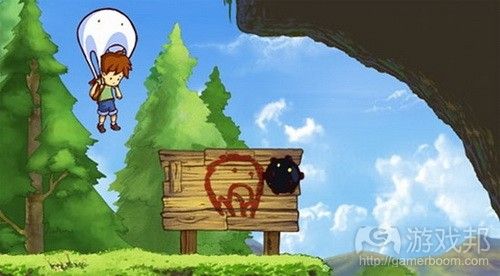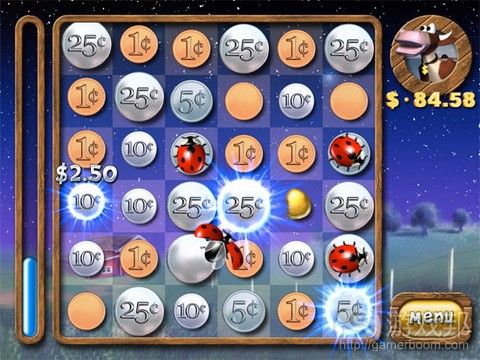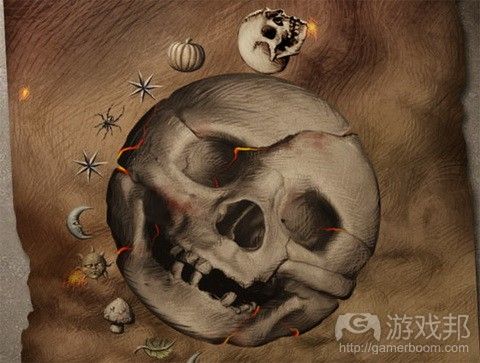游戏设计不宜作为新手入行职业选择
作者:Jacob Stevens
高中毕业时,我的数学老师送给我们几句话,“班上所有女生都想要成为海洋生物学家,所有男生都想要制作电子游戏。所以你们要一直学习数学!”当然他这么说有些夸张,但他的观点无可非议:所有光鲜靓丽的事业都是靠来之不易的专业技术支撑的。
回到10年前,我自己被迫不得不给出相同的忠告。作为家乡为数不多的开发者之一,我时常被问及要如何“进入游戏设计行业”。
因此,自然有很多人,尤其是高中和大学毕业生将游戏设计视作理想职业选择。但根据我个人的观察,过早涉足设计会降低大家今后变成设计师的可能性。
因此,若你想要以后变成游戏设计师,我强烈建议你掌握编程或美术创作这样的专业技能,然后锁定能够带给你设计经验的独立项目。
文章中,我将谈及若干支撑此说法的观点:
——设计入门职位很少见。只有在其他领域表现突出的开发者方能得到设计职位。
——就比例来说,游戏所涉及的多数工作都集中在美工和编程。若你掌握其中某项技能,你所做的贡献会更多。
——优秀设计师需对美工和技术有深刻的理解,所以直接了解这些领域非常必要。
——学习美工或编程并不意味着放弃学习设计。事实上,若你同时钻研某项制作技能,你会更快掌握设计知识。
若干声明
在继续内容之前,我将给出几点声明。
首先,我觉得游戏设计是开发的首要工作。开发者需要通过有趣的前置内容吸引玩家眼球,确保游戏元素具有平衡性,能够凭直觉进行操作,让玩家持续体验到富有深度和多样性的内容,而且还要协助解决开发周期中的各种小问题。正是基于开发者的特殊和重要位置,我才在文章中得出这些结论。
其次,我的观点纯粹是基于我个人的观察结果。我的行业经验来自于3种工作背景:1)独立制作游戏12年,成为专业设计师7年。2)担任Wayforward(游戏邦注:锁定任天堂设备的加利福尼亚开发公司)的外包美工。3)担任IBM的主要界面设计师。我承认自己缺乏这样的视角:制作髙预算AAA作品的大型工作室所坚持的理念。
提高被雇佣机率
我的工作经验使我悟到第一点:在我入行期间,及推出众多作品的过程中,我们从没看到有公司聘请新手设计师。初级设计职位很少见,因为大家通常是凭借在团队中做出突出贡献而得到设计职位,或者是因共同创办工作室而得到此职位。
在Wayforward,我发现主管(负责设计工作)通常会晋升为动画师,因为优质动画是他们公司的特色。在IBM,虽然有几位“纯”设计师是凭借人体工学的高学位而得到设计职位,但除此之外多数设计师起初都是编码员或美术设计师。最后,小型独立工作室通常不会聘请新人员,若他们有聘请人员,通常也很少会是设计师,因为这项工作通常团队共同完成,或由团队的某位创始人承担。
此外,我要指明的一点是,我们很难通过学校证明自己是优秀的设计师。美工可以凭借作品,程序员可以凭借运行代码,但我从未在设计求职者发送的简历中发现任何能够供我们进行评估的有形内容。这也是为什么设计师人员通常会在公司内部中提拔,而不是另外聘请。
另一需要考虑的事项是设定退路计划。我不喜欢泼冷水,但必须要说的是,不是所有希望靠制作游戏谋生的人都能够最终找到工作。相比游戏设计专业人士,程序员和美术设计师更容易在游戏之外的领域找找到工作。
小型设计过程漫长
初期职业道路不要选择游戏设计的第二个原因体现在简单的比值数据上:设计游戏所需要的总体工作时日,与执行设计内容(将其变成可供出售的作品)相比要少很多。
1天设过程作所带来的后续工作需要团队其余成员花费1个月完成。我也曾同时承担两端的创造和接收任务。就《Cash Cow》(游戏邦注:这是一款配对游戏)之类的简单游戏来说,完成设计工作只需很短的时间,但将这款游戏转变成其当前的状态却需要花费几年时间。在此你将拥有更多的表现机会,同时若你在其他方面表现突出,你会更有机会变成团队成员。
优秀游戏设计师需掌握美工和技术知识
就表面来看:游戏由美工和技术元素推进。结合图像、声音和计算机是游戏的本质,这些是将它们同其他艺术形式的区别所在。我们很难列举出一款图像和技术表现不尽人意但最终却取得突出成绩的作品,在很多情况下,它们在这些方面的表现都非常突出。
稳固技术和优美图像不是在游戏完成设计后才添加的。这些基础元素需要在一开始就深深植入设计中。
因此,设计师需要把握美工、编程、声音、故事叙述及所有其他构成游戏的元素。这些领域的经验,或通过同内行人士共事获得,或通过亲自涉足。的确,要直接掌握所有这些学科的知识几乎不可能。但经验交流远胜过理论知识,因此有抱负的设计师通常会深刻掌握至少一个领域的知识。
别担心,你依然可以学习设计
我的某些雄心勃勃的设计师好友担心的一点是,掌握另一技能(游戏邦注:例如编程)是否会分散学习设计的精力。你在腾出时间学习如何编写代码的同时就得将游戏设计的学习时间缩短,是吧?
值得庆幸的是,情况并非如此。首先,你在制作图像或编写代码的同时,其实也是在进行游戏设计。确实如此,无论你在团队的职务是否是游戏设计。游戏设计文件,无论有多严谨,都会产生许多不同理解,因此多数设计工作都停留在执行过程中。
此外,你有必要在正式训练过程中结合相应的外部游戏开发活动。只要你已逐步能够胜任自己所选定的技能,你就应该创建团队,共同制作项目。团队应该保持小规模,这样所有人都能够扮演设计师角色。这些项目是积累设计经验的必要途径,虽然设计不是教育过程的焦点。
你无需依赖我所陈述的观点
我建议你问问游戏设计专业背景的人士,看他们是否能够一毕业就选择游戏设计作为自己的职业。我有位朋友在技术学校主修设计,他称自己认识的同专业学生没有一位得到设计职位。此外,问问你认识的业内人士,他们的团队是否有在寻找新手开发者,没有其他技能的“纯”设计师。我们相信他们的答案都和我一样。
我并不是说行业不存在初级设计职位,但我相信,美工或程序员被聘用的机率要大很多。此外,若你具备制作技能,能够凭此展示自己的才能,你被提拔为设计师的可能性会更大。
若我不擅长美工或编程的话,该怎么办?
另一我常听到的声音是,某人不是优秀美工,或对编程不感兴趣,但依然有很多很棒的游戏构思。非常遗憾,这是糟糕的借口。这就像是建筑师说自己不想学习建筑材料,或是厨师不想学习切洋葱。图像和编程是游戏的核心要素,若你对这些不感兴趣,那你就不能说自己对游戏设计感兴趣。
但不要泄气:熟能生巧。现在你也许算不上优秀美工或程序员,但没有什么能够阻止你掌握这些技能。熟练掌握技能需要耗费很多时间,但这就是竞争性行业的实况。
那么音乐、写作和声音设计呢?
截至现在,我一直强调美工和编程是进入游戏行业,最终变成设计师的两个可靠渠道。当然还有一些学科对游戏设计来说至关重要,其中包括音乐合成、声音设计、写作和制作等。
当然我们还能够通过其他可行方式进入游戏行业(游戏邦注:如果这些方面是你的强项)。但和游戏设计师一样,相比视觉美工和程序员,团队的音乐师、创作者和音效设计师人数要少很多。因此,虽然我觉得这些技能更具雇佣价值,但是若坚持走此条道路,你就得做好接受激烈竞争的准备。
正面看法
本文的宗旨并不是让大家失去信心。我很清楚,也许很多读者都是设计专业的学生。我所陈述的观点并不怎么鼓舞人心。的确如此;我相信单游戏设计专业本身就足以让你感到颇为失望。
但我的观点是积极的:若你学习游戏设计,外加有形制作技能,你就能够有效提高自己的获胜可能。你不仅会因此更具雇佣价值,你的设计技能也会得到极大提高,你将做出更多贡献,从而以更多的制作经验支撑你的设计工作。
最重要的是,你将能够把自己的设计付诸实践,而不是仅仅停留在构思层面上,这无疑更具成就感。(本文为游戏邦/gamerboom.com编译,拒绝任何不保留版权的转载,如需转载请联系:游戏邦)
The Pitfall Of Game Design As An Entry-Level Career Choice
By Jacob Stevens
[Jacob Stevens, the owner of Riverman Media, offers home helpful tips for breaking into the industry, noting why a design job might not be the right fit for a fledgling developer.]
When I was a senior in high school, my math teacher, never one to hold back a nugget of wisdom, had a few departing words for us. “Every girl in my class wants to be a marine biologist, and every guy wants to make video games. So you’re all going to have to keep learning math!” He was exaggerating of course-I knew several girls who weren’t interested in marine biology-but his point was well-taken: behind every glamorous and desirable career choice lies a hard-earned, but slightly less enchanting, technical skill.
Fast forward about a decade, and I find myself compelled to dispense similar advice. As one of just a handful of developers in my hometown, I am frequently asked how to “get into game design.” Indeed, it is rare to discuss my career with anyone (including non-gamers) without them proposing a game concept to me.
Thus, it makes sense that many people, especially high school and college students, conceive game design to be an ideal career choice. However, my observations have led me to the conclusion that a premature focus on game design greatly limits one’s probability of becoming a designer later in one’s career.
Therefore, if your intention is to eventually become a designer, I strongly suggest that you acquire a technical skill such as programming or art production, alongside pursuing independent projects that will give you design experience.
In this article, I will examine several perspectives that support this claim:
- Entry-level positions for designers are rare. Designers earn their positions by first excelling at other work.
- Proportionately, most of the effort that goes into a game is invested in art and programming. You will be able to contribute more if you know one of these skills.
- Good designers must have a deep understanding of art and technology, so it makes sense to develop firsthand understanding of these fields.
- Learning art or programming does not mean you have to forego learning design. In fact, you will learn design faster if you are focusing on a production skill at the same time.
A Few Disclaimers
Before I continue, I should qualify my arguments with a few disclaimers.
First, in case there is any doubt, I consider game design to be the most important job on the development team. It is the designer’s job to hook players with a compelling premise, make sure play elements are balanced and intuitive, keep players entertained with depth and variety, and to help solve all the little hiccups that occur during the development cycle. It is because of the designer’s unique and pivotal role that I have come to the conclusions drawn throughout this article.
Second, I should also add that my arguments are based purely on my own unique set of observations. My industry experience comes from three work scenarios: 1) Twelve years of creating games independently, seven professionally. 2) Working as a contract artist for Wayforward, a California-based company specializing in Nintendo handhelds, and 3) As a lead user interface designer for IBM (U.I. design being the “serious” equivalent of game design.) One perspective I am admittedly lacking is that of working for a large studio that produces big-budget, triple-A titles.
Boost Your Odds of Getting Hired
My work experience brings me to my first point: in all my time in the industry, working on at least a dozen published titles, I have not once witnessed the hiring of an entry-level designer. Entry-level positions for designers are rare because the job of designer is usually earned through outstanding contribution as a team-member, or created when someone founds their own studio.
At Wayforward, I noticed that directors (who were in charge of design) typically rose up the ranks as animators, since great animation is their company specialty. At IBM, although there were a few “pure” designers with advanced degrees in human factors, most of the designers started as either coders or graphic designers, and the ones that didn’t were hired later in their careers. Finally, small indie teams often don’t hire at all, and when they do, they are rarely looking for designers, as this job is generally performed as a group or covered by one of the team’s founders.
Additionally, I should point out that it is very difficult to prove, straight out of school, that you are a good designer. Artists have portfolios, and programmers have working code, but I have never been sent a resume from a designer with any tangible work to evaluate. This is one of the reasons that designers are typically raised from within a company instead of hired cold.
Another consideration is that of having a fallback plan. I hate to break the bad news, but not everyone who wants to make games for a living lands a job right away. Programmers and graphic designers will have a much, much, much easier time finding good jobs outside the game industry than someone trained in game design.
A Little Design Goes a Long Way
The second reason not to choose game design as an early career path is one of simple proportions: the total number of person-hours spent designing a game is miniscule compared to the number of hours that it will take to execute the design and turn it into a sell-able product.
A day of designing can easily create a month of work for the rest of the team. I’ve been on both the giving and receiving ends of this equation! A game as simple as my studio’s Cash Cow, which was essentially just a matching game, was designed in a very short amount of time, but took years to implement in its current incarnation. You will be much more able to contribute, and much more valued as a team member, if you are productive in other ways.
Good Game Designers Must Understand Art and Technology
Let’s face it: games are driven by art and technology. The merging of visuals, audio, and computers is the essence of games, and is what differentiates them from other art forms. It is hard to think of a critical or commercial success that isn’t both artistically and technically competent, and in many cases even groundbreaking.
Solid technology and stunning visuals are not elements that are injected after a game has been designed. These cornerstone elements must be deeply integrated into the design from the beginning.
Therefore, it is absolutely essential that designers have a fundamental understanding of art, programming, audio, storytelling, and all the other components that comprise games. Experience in these fields can either be gained by working with people who fill these roles, or as someone who fills these roles. Indeed, firsthand knowledge of all these disciplines is unlikely. Nonetheless, experiential understanding beats cursory theoretical knowledge by a long shot, and therefore aspiring designers would do well to cultivate a deep understanding of at least one of these fields.
Don’t Worry, You Can Still Learn Design!
One concern that one of my aspiring designer friends has is that mastering another skill, like programming, will detract from learning design. All the time you spend learning to write code is time you aren’t spending learning how to design games, right?
Fortunately, nothing could be further from the truth! First of all, any time you are making art or programming, you are also designing. This is true whether or not design is your official role on a team. A game design document, no matter how thorough, leaves oceans of room for interpretation, and therefore large amounts of design are left up to the individual performing the implementation.
Additionally, it is imperative that you supplement your formal training with outside game development activities. As soon as you are at least somewhat competent in your chosen skill, you should be working toward forming a small team to produce projects with. The team should be small enough that everyone will act as a designer in some way. These kinds of projects are an essential way to gain design experience, even if design isn’t the focus of your education.
You Don’t Have to Take My Word for it
I challenge you to ask anyone you know who has focused their education on game design whether or not they were actually able to make a career out of game design straight out of college. I have a good friend who has a degree in design from a major technical school, and he says that he doesn’t know anybody with his degree that was hired as a designer. Additionally, ask anyone you know who works in the industry whether their team is looking for entry-level, “pure” designers with no other skills. I have a feeling that their answers, frustratingly, will align with what I’m telling you.
I am not claiming that entry-level jobs for designers don’t exist at all, but I’m confident that your odds of getting in the door are an order of magnitude higher as an artist or programmer. Additionally, your prospects of rising to the top as a designer are much better if you have a production skill that you can leverage to show off your talent.
What if I’m No Good at Art or Programming?
Another argument I commonly hear is that someone isn’t a good artist, or isn’t interested in programming, but still has a lot of great game ideas. I’m sorry, but that’s a poor excuse. That is like an architect saying they don’t want to learn about building materials, or a chef not wanting to learn to chop onions. Art and programming (along with a few other disciplines that I’ll mention later) are the core elements of games, and if you aren’t interested in them, you really can’t say you’re interested in making games at all.
But take heart: Nobody is good at something until they practice. You might not be a great artist or programmer now but there is nothing stopping you from acquiring these skills. Mastery will take time-a lot of time-but that’s the reality in any competitive industry.
What About Music, Writing, Sound Design, etc?
So far I’ve emphasized art and programming as the two most reliable ways to break into the industry and eventually become a designer. There are of course other disciplines vital to game development, including music composition, sound design, writing, producing, etc.
These are certainly viable ways to get into games if they are where your strengths lie. However, as with game designers, there are many fewer musician and writers and sound effects designers on a team compared to visual artists and programmers. Consequently, while I do see these skills as somewhat more hire-able, expect lots of competition for few openings if you go this route. (As an aside, I should mention that I get more unsolicited resumes for music composers than all other disciplines combined. That leads me to believe that the supply of composers far exceeds demand in the industry.)
The Good News
My intention with this article is not to dishearten or frustrate anyone. I am especially conscious that many readers might be enrolled in an educational program that emphasizes design. What I’m telling you probably does not sound especially encouraging. It’s true; I believe that a game design degree, on its own, is likely to leave you frustrated.
My point, however, is an optimistic one: If you learn game design, along with a tangible production skill, you can increase your odds of success by an order of magnitude. Not only will you be substantially more hire-able (both inside and outside the game industry), but your design skills will improve tremendously, you’ll contribute more, and you’ll be able to back up your designs with production experience.
Most importantly, you will have earned the ability to act on your designs by bringing them into reality, rather than limiting them to the realm of ideas, which is infinitely more fulfilling.(Source: gamecareerguide)


